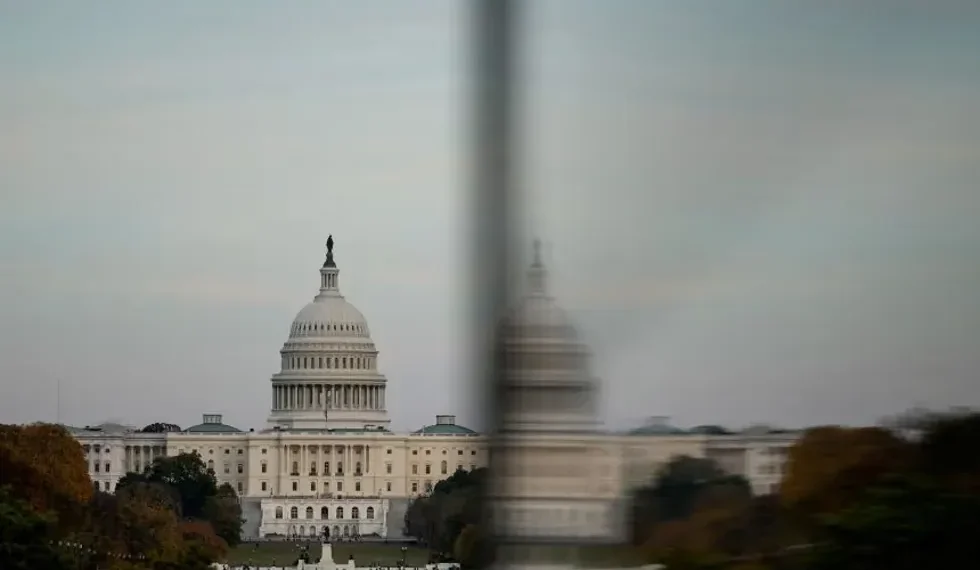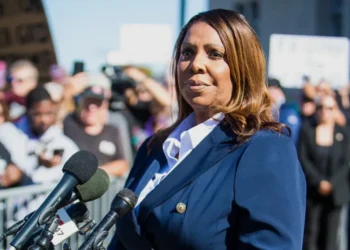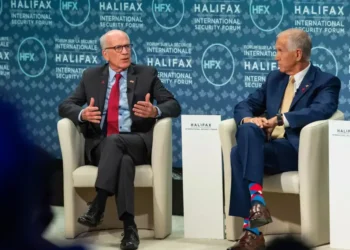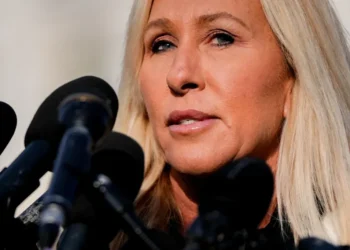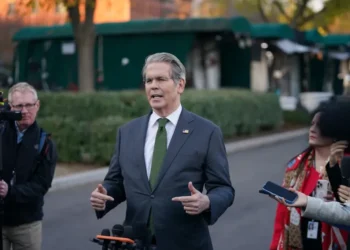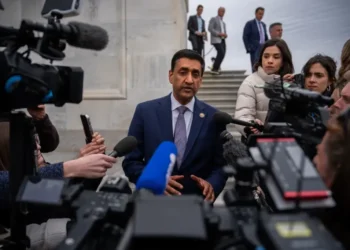A group of centrist Senate Democrats has reached a deal with Republican leaders and the White House to temporarily reopen the U.S. government. The agreement includes a stopgap funding measure and sets the framework for future discussions on enhanced Affordable Care Act (ACA) subsidies, even as divisions persist within both parties.
Agreement Aims to End Longest U.S. Shutdown
At least eight Senate Democratic centrists reached a deal Sunday night with Senate GOP leaders and the White House to reopen the government, according to two sources familiar with the discussions. The agreement is designed to extend federal funding through January and link it to a broader package to fully fund key agencies.
The plan comes as the United States faces its longest government shutdown in history, affecting hundreds of thousands of federal workers and multiple government services. Although the deal does not guarantee an immediate extension of ACA subsidies, Democrats involved expect that GOP leaders will negotiate a compromise in the coming weeks.
Senate voting on the measure is anticipated to begin Sunday evening between 8:30 and 9 p.m. ET, according to a Republican aide.
Key Lawmakers and Negotiators
The deal was brokered by three former governors—Senators Jeanne Shaheen of New Hampshire, Angus King of Maine, and Maggie Hassan of New Hampshire—together with Senate Majority Leader John Thune and the White House.
Among the Democratic supporters is Senator Tim Kaine of Virginia, who emphasized the importance of maintaining federal workers’ pay and reversing mass firings during the shutdown. “Lawmakers know their constituents expect them to vote for it, and if they don’t, they could very well be replaced at the ballot box by someone who will,” Kaine said, referring to GOP senators who might not back future health care negotiations.
The agreement also ensures protections for federal employees, including full pay for time spent during the shutdown and measures to prevent further mass terminations during the fiscal year.
Opposition Within the Democratic Party
Despite the centrist backing, Senate Democratic leaders have not formally endorsed the deal, holding a closed-door meeting Sunday night. Several liberal senators have voiced strong objections, most notably Senator Richard Blumenthal of Connecticut, who stated, “For me, it’s no deal without health care.”
Even some moderate Democrats expressed concerns. Senator Elissa Slotkin of Michigan said she was no longer involved in the negotiations in recent days and questioned whether the agreement would deliver meaningful ACA support.
House Democrats Reject the Plan
In the House of Representatives, Democratic leaders criticized the agreement, with Minority Leader Hakeem Jeffries declaring that his caucus “will not support spending legislation advanced by Senate Republicans that fails to extend the Affordable Care Act tax credits.” House Democrats plan to meet Monday to discuss strategy, signaling a potential legislative roadblock.
The broader funding package linked to the stopgap measure includes three full-year appropriations bills covering military construction and veterans affairs, the legislative branch, and the Department of Agriculture. Notably, it allocates $203.5 million to enhance congressional security and $852 million for the U.S. Capitol Police, according to top Democratic appropriator Senator Patty Murray.
Legislative Process Ahead
If the Senate approves the measure, it would first take up the House-passed stopgap bill. Support from at least eight Senate Democrats is needed for it to advance. Once amended with the full funding package, the bill would return to the House before reaching the president’s desk, potentially extending the legislative process by several days.
The plan faces an uncertain future in the House, where Speaker Mike Johnson holds narrow margins and Democratic opposition remains firm.
Calls for Compromise and Moving Forward
Democratic Senator John Fetterman, who has supported GOP funding measures during the shutdown, urged colleagues to accept the deal as a pragmatic step. “Vote yes, and then we can find a way to lower our costs about health care,” Fetterman said, emphasizing a path toward resolving the ACA subsidy dispute while restoring government operations.
This article was rewritten by JournosNews.com based on verified reporting from trusted sources. The content has been independently reviewed, fact-checked, and edited for accuracy, neutrality, tone, and global readability in accordance with Google News and AdSense standards.
All opinions, quotes, or statements from contributors, experts, or sourced organizations do not necessarily reflect the views of JournosNews.com. JournosNews.com maintains full editorial independence from any external funders, sponsors, or organizations.
Stay informed with JournosNews.com — your trusted source for verified global reporting and in-depth analysis. Follow us on Google News, BlueSky, and X for real-time updates.
